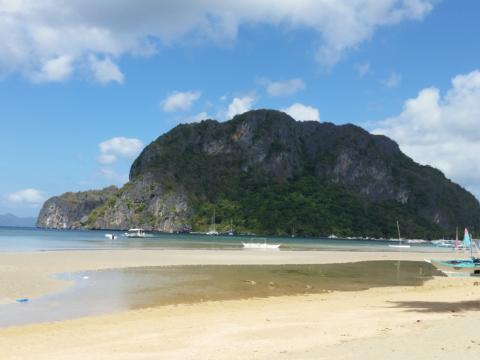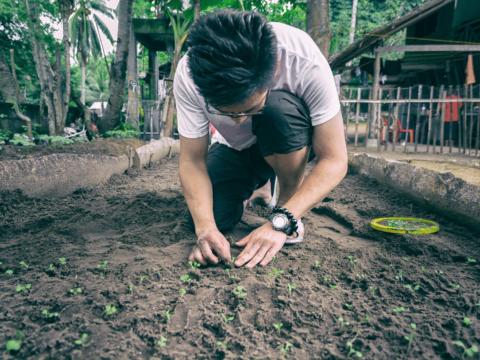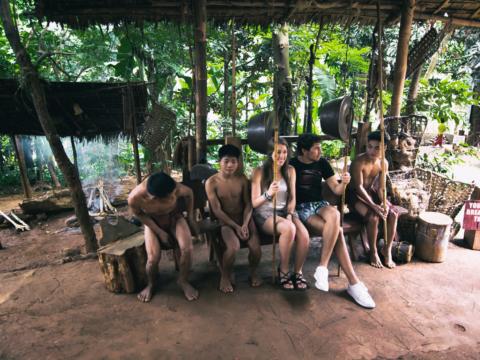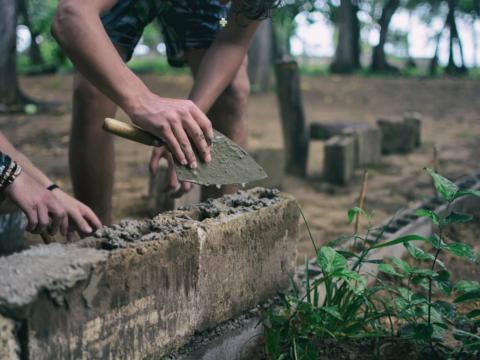Only 600€ per week!
Village Healthcare
Aborlan (Palawan) - Philippines
Assist in the healthcare of villagers in one of the most rural areas of Palawan. Get work experience while immersing in a new culture and world!
Participants with a medical background who would like to gain more experience in rural healthcare practices will have the chance to exchange medical knowledge with local doctors and nurses. Each day is a new challenge to provide healthcare to the local people with very basic equipment and supplies!
Program Description
There are many people living in the rural areas far away from the big hospitals in the cities. In the rural areas of the Philippines people go to the local healthcare centres for their health care treatments.
Participants with a medical background who can lend a helping hand are more than welcome and greatly appreciated. Furthermore, there are also small hospitals located in the district’s centre where villagers can go for health check-ups and treatments when they are sick. Our participants are also more than welcome in these places.
You will be working in a small hospital and/or local health care center depending on the schedules of the clinics. This project is all about exchanging work/medical experience with local doctors and nurses and gaining new skills. You will be working alongside a local doctor and/or nurse to assist them in their daily operations. Moreover, you will arrange and join healthcare campaigns for children at local schools to increase their health awareness.
Activities that you could join depending on the need during your stay:
- Working in hospital/healthcare center or in school
- Shadowing, observing and assisting in a village healthcare clinic.
- Shadowing, observing and assisting in a local hospital
- Feeding malnourished children
- Providing health care lessons in local schools
- Medical knowledge exchange with local doctors
- Visiting the old and sick local people inside the villages.
***Please be advised that even though the digital copy is being submitted, all participants should also bring a hard copy of their CV/Resume and Criminal Background Check with them, to be presented to their placement when they arrive.***
Aims & Objectives
- Tend to the healthcare needs of the rural community of Palawano
- Gain insight into a rural healthcare centre.
- Provides you with practical work experience in the medical field
- Improve the health awareness of local school children.
Schedule
Monday to Friday
- Breakfast
- Working in hospital/healthcare center or in school
- Lunch
- Working in hospital/healthcare center or in school.
- Dinner
Note: This schedule can be changed and/or amended depending on weather conditions, local conditions and unforeseen circumstances.
Participant Criteria & Requirements
Standard Requirements
Minimum age: 18
Maximum age: –
Minimum English level: Basic
CRB required: On Signup
Passport copy required: No
Resume copy required: On Arrival
Required qualification: Medical Background
Additional Requirements
- Medical education or related work experience. Doctors, nurses, therapists and medical students are welcome.
Additional Equipment
- Your own scrubs
Location
Palawan is a special island dotted with fishing villages and surrounded by beautiful blue sea. The scenes contrasts perfectly with the emerald green jungled mountains which form its landscape. Our accommodation is located in Tigman Village in Aborlan District, a small and laid back area just outside of Puerto Princesa City.
About the Accommodation
This center houses all participants in their programs around Palawan. It is built with many natural elements and have a tropical beach look to them! You’ll be sleeping on bunk beds and we have limited laundry facilities, so expect to wash your clothes by hand, unless you’d like to use the laundry service here for a small fee. Due to our tropical setting, WiFi service may not be what you are used to at home. It is limited and sometimes inaccessible due to weather, so having your own local SIM card and purchasing data through the GLOBE network may be your best option for staying connected consistently while you are in our local village. Please be advised that due to jellyfish in the water, it is unlikely that you will be able to swim at the beach close by the accommodation. There is an area near the river or on the other side of the village, which is about a 15 minute walk away, where you will be able to enjoy some time in the water.
Food Arrangements
The food will consist mainly of local Philippine cuisine (lots of vegetables, meat, egg and rice) and will be served on site at this accommodation.
Facilities
There are many forms of local transportation such as jeepneys, buses and vans which depart every hour to the town of Aborlan or to the next town Narra.
There are ATM’s & Western Union transfers available in the town of Nara which is about 30 minutes away by car. Here, you can also find all necessary amenities.
Activities & Events
Tuesday Night
Join us for a Bonfire activity where we can get to know each other and enjoy the great outdoors under the stars. Who doesn’t love a bonfire?
Thursday Night
Come on and join in with us as we sing your favorite tunes and have a musical trip down memory lane. It’s not about having the best voice, it is however, about having the most fun!
Sights & Surroundings
Coron Bay
Found at the northwest of Palawan (between Busuanga and Culion islands) is known for being one of the best wreck diving locations in the world.
Puerto Princesa Subterranean River National Park
Located 50 km north of the city of Puerto Princesa and has recently been voted one of the new 7 wonders of nature.
Transportation
From this location we provide free transport to your next program at the following location(s):
- El Nido (Palawan)
Quick Facts
Name: Republic of the Philippines
Population: 100 milion
Capital: Manila
Language: Filipino
Currency: Peso (PHP)
Time zone: PST (UTC +8)
Country Information
The Philippines is made up of a total of 7,107 islands, only 2000 of which are inhabited. The islands are broadly categorized under 3 main geographical divisions: Luzon, Visayas and Mindanao. It is the 7th most populated country in Asia and the 12th most in the world.
As a newly industrialized country, the Philippine economy which was once founded upon its agriculture is now moving towards an economy based on services and manufacturing.
It is unsurprising that the Philippines attracts tourists due to its incredibly rich biodiversity found across its islands. The mountains, rainforests and diving spots as well as its impressive cultural heritage all add to the reasons why the Philippines is such an incredible place to experience.
Climate
The Philippines experiences a tropical maritime climate meaning that it is normally hot and humid and there are 3 distinct seasons:
- Hot, dry season from March to May
- Rainy season from June to November
- Cool, dry season from December to February
The southwest monsoon lasts from May to October and the dry monsoon in the northeast from November to April.
Temperatures in the Philippines normally range from 21°C to 32°C with the coolest month being January and the hottest, May. The yearly average is 26.6°C..
The Philippines sits on the typhoon belt and so most islands experience torrential rains and storms from July to October.
Culture
The Philippines is a secular state and stemming from its Spanish cultural influence and it is one of only two Roman Catholic countries in Asia. Its Christian population is at about 90%. The country displays a mixture of Eastern and Western culture. Whilst it undeniably preserves cultural aspects found elsewhere in Asia, its hispanic influence is perhaps most noticeable especially in the architecture and names of streets, towns and provinces.
Gastronomy
True to its mixed culture, Philippine cuisine also reflects numerous different influences especially Hispanic, Chinese and American. Dishes vary from the simple to the elaborate and tend to be defined by strong flavours although they are generally less spicy compared to other Asian countries.
Moreover, unlike most Asian countries, Filipinos don’t eat with chopsticks and instead use western cutlery. The most common pairing, maybe due to the common consumption of rice is a fork and a spoon.
Transportation
Pedicabs
These are a sort of push tricycle and are particularly useful for short journeys.
Habal-Habal
These are motorbike taxis and normally slightly cheaper than the pedicabs.
Jeepney
These are essentially modified army jeeps that were left by the Americans after the second world war. They are frequently painted with images of the Virgin Mary and/or scenes from comic books.They are the main form of urban transport in most cities and are an alternative to bus transport between regions for the longer journeys. They are a popular mode of transport but not ideal for sightseeing along the way due to the narrow window space.
Bus
These come in all different shapes and sizes and bus stops are frequent throughout towns and more rural areas, although bus services in more remote areas may only run during the morning.
Minivans
These often shadow bus routes and despite being quicker than buses, you often have to wait until the van is full before it will set off and they can be fairly cramped as well as more expensive than the bus.





